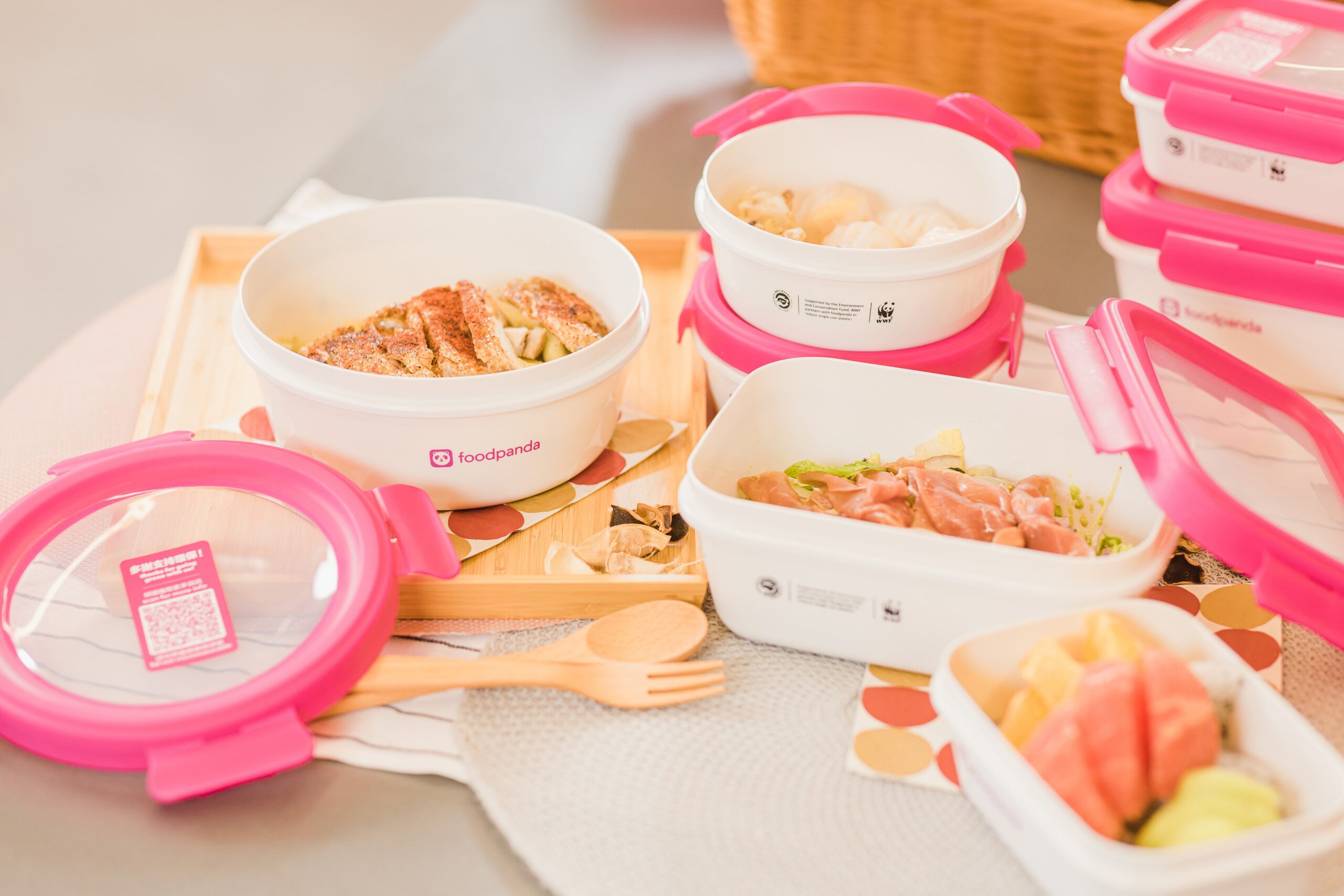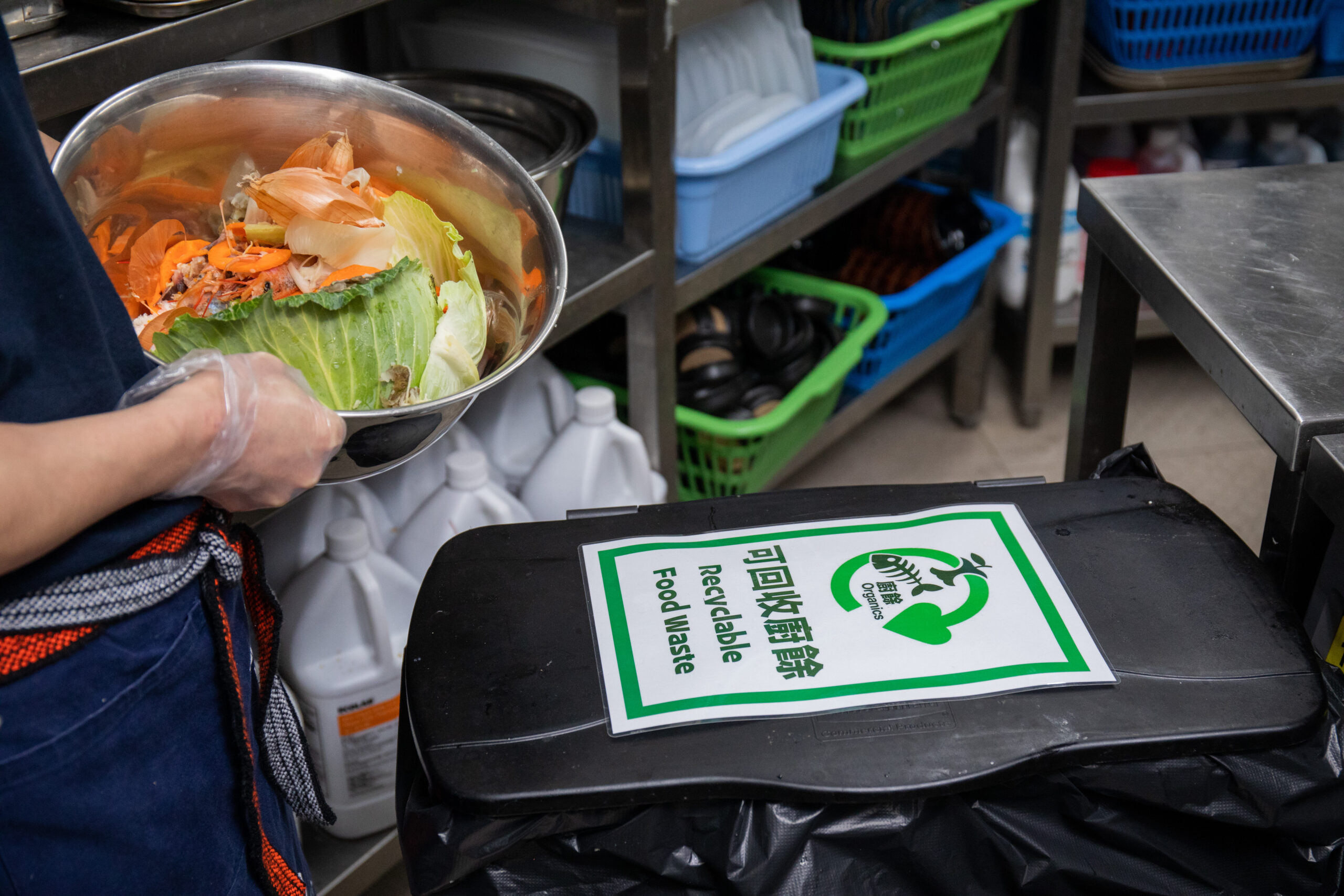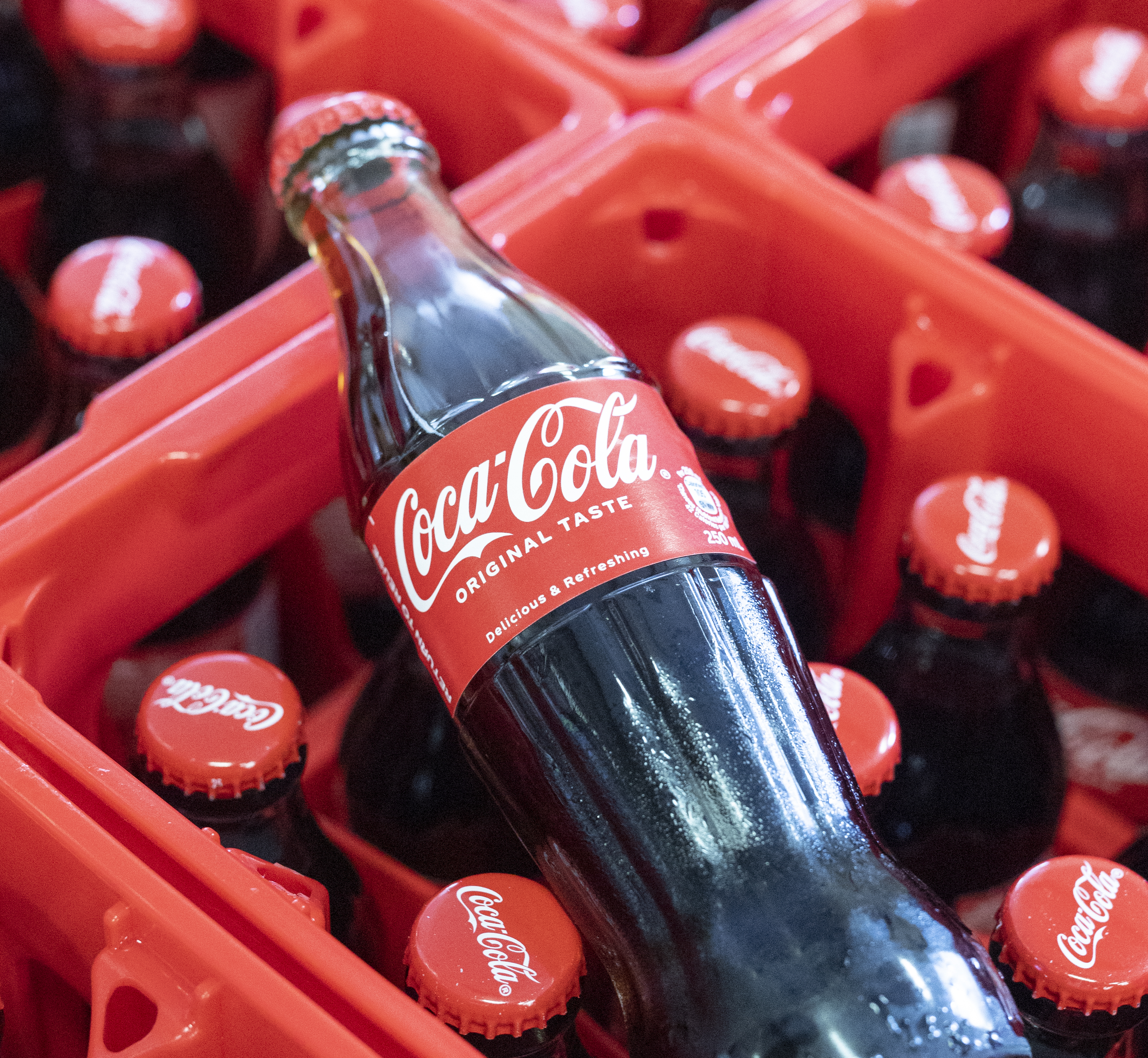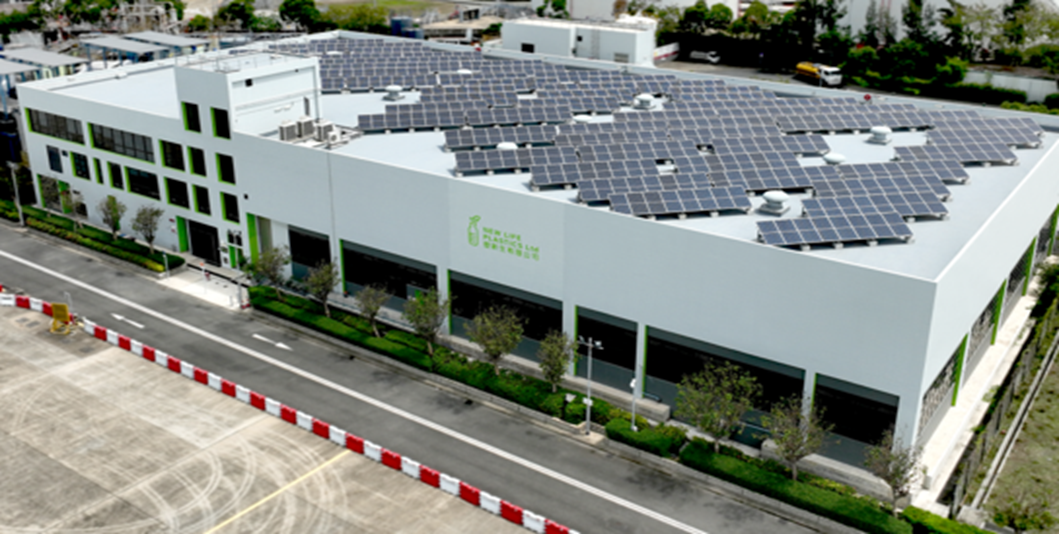Turn today’s waste into
tomorrow’s resource



As the world’s population and affluence increases, so does waste. Landfills are reaching capacity. States are imposing regulations and financial penalties aimed at curbing waste generation. There is growing public awareness of recycling and the need for responsible disposal of materials. This is particularly true for plastics. There is a need to decouple growth from the consumption of finite resources and keep resources in the loop for longer. Doing so will help address challenges like climate change, biodiversity loss, and pollution.
By reducing and recycling our waste we lower the cost of packaging, waste management and disposal, and potentially create new revenue streams. We aim to turn today’s waste into a resource for tomorrow and to contribute to the creation of a circular economy. As a Group, we have set a goal of sending zero waste to landfill by 2050.
Our Waste Management Policy sets out the Group’s approach to managing and reducing waste across its operations. This is what we do:
Reduce waste at source
Promote recycling, reuse and recovery in order to divert as much waste as possible from landfill
Manage hazardous and potentially hazardous waste in an appropriate, responsible and transparent manner
Reduce the impact of our beverage packaging
Explore opportunities to contribute to the circular economy
In 2022, the Group generated a total of 66,645 tonnes of waste, 25% less than in 2021. Of this, 96% was non-hazardous waste and 4% was hazardous waste. Overall, 59% of the total waste generated by the Group in 2022 was recycled, reused, or recovered. Our Property and Beverages divisions accounted for 53% and 40% of the Group’s total non-hazardous waste in 2022 respectively.
Swire Properties’ waste diversion rate was 35% in 2022, compared to 29% in 2021. Tenants in Hong Kong and the Chinese Mainland were encouraged to reduce and recycle waste. Swire Coca-Cola’s waste diversion rate was 90% in 2022, compared to 88% in 2021. HAECO’s waste diversion rate increased from 41% in 2021 to 62% in 2022. It’s improvement is primarily due to the improved waste recycling strategies for wood and metal, and adoption of waste-to-energy in parts of its Chinese Mainland operations. Trading & Industrial division’s waste diversion rate for 2022 remain around the same as for 2021.
By 2030, we aim for 65% of our waste to be diverted from landfill. The target covers non-hazardous waste generated by operating companies, which together made up 99% of the Group’s total waste footprint in 2022. Hazardous waste is not included in the target. It is treated in line with local regulations. Subsidiaries covered by our target diverted 59% of their waste from landfill in 2022, an improvement from 52% in 2021. Based on our 2030 projections, we surpassed our 51.2% waste diversion target for 2022.
Total waste generated by division 2022
(tonnes)
Total waste generated by division 2022
(tonnes)
| 2022 | Waste disposed (Non-hazardous) |
Waste disposed (Hazardous) |
Waste recycled (Non-hazardous) |
Waste recycled (Hazardous) |
Waste reused (Non-hazardous) |
Waste recovered (Non-hazardous) |
|---|---|---|---|---|---|---|
| Property | 22,390 | 1 | 11,269 | 9 | 18 | 644 |
| Beverages | 2,413 | 121 | 18,233 | 106 | - | 4,751 |
| Aviation | 1,369 | 1,553 | 1,205 | 171 | - | 1,042 |
| Trading & Industrial | 33 | 349 | 858 | 77 | 7 | - |
| Marine Services | - | 25 | 0 | - | - | - |
The easiest way to reduce waste is not to use single-use materials and packaging, where possible. We collect data about our waste. We try to take account of waste prevention when we design and buy things. We encourage employees and customers to minimise waste.
Our Waste Working Group has developed an internal handbook on single-use plastics. It provides subsidiaries with information about different types of plastics and alternative materials, and guidance to inform procurement decisions. These include the need to consider whether the material can be recycled or composted, whether local recycling infrastructure exists to ensure it is recycled, and whether there is market demand for the recycled material, which would facilitate its collection and recycling. The handbook was also shared with members of our Supply Chain Working Group.
Swire Properties’ waste management policy deals with the design, planning, construction, and operation of its buildings. It evaluates the management of resources, analyses information about waste, and tries to promote the circular economy. Tenants and other building users generate over 90% of the waste generated in Swire Properties’ buildings. Engaging with tenants is critical to reducing waste. Swire Properties collects data about more than 20 types of waste produced by tenants, hotel guests, and serviced apartment occupants.
In July 2022 in Hong Kong, the Green Performance Pledge (GPP) was officially launched. It is a performance-based landlord-tenant partnership, focusing on creating a significant impact in terms of energy, water, and waste reduction. This performance-based programme gives users access to an array of “green tools” and enhances tenant-landlord collaboration. Tailored SD offerings include Hong Kong’s first smart waste reduction monitoring system. Swire Properties aims to engage 50% of office tenants in Hong Kong and the Chinese Mainland in the GPP by 2025.
Swire Hotels:
In 2022, Hotel Sustainability Technical Guidelines were rolled out.
Swire Hotels
waste reduction targets*
2025: achieve
28%
waste diversion rate
2030: achieve
54%
waste diversion rate
*against a 2018 baseline for all hotels and residences, except for The Middle House and EAST Residences which use a 2019 baseline.
- Further retrofitted rooms with an in-room water filtration system, eliminating the need for plastic bottled water in rooms and reducing the use of bottled water by at least 30%.
- The Temple House, The Middle House, and EAST Hong Kong removed all single-use plastics – replacing all straws, hampers, room amenity wrappers, and toothbrushes with products made from biodegradable materials.
- Incorporated the updated Sustainable Procurement Policy and Sustainable Food Policy into purchasing procedure guidelines. This includes adhering to the three ‘R’s (reduce, reuse and recycle) and purchasing fresh produce from local suppliers to reduce the carbon emissions from shipping food.
EAST Hong Kong also collaborated with a social enterprise dedicated to promoting urban farming in Hong Kong to build an urban garden in a corner of the hotel’s pool deck.
Swire Resources supports the Hong Kong Green Building Council’s Green Shop Alliance Programme. It avoids excessive promotional decoration and packaging. Since 2020, it has encouraged customers to bring their own bags on its “No Shopping Bag Day”. It will donate HK$0.50 to an environmental NGO for every bag-free transaction on the second Tuesday of each month. It also donates all shopping bag levies collected on that day.
We collect and sort different types of waste and work closely with recycling partners to provide credible outlets for the recyclables we collect.
We have implemented Group standards for waste separation at source. They require the provision of separate receptacles for five main categories of waste: paper, metals, plastic bottles, general plastics, and general waste. Glass and food receptacles should be placed at strategic locations, where appropriate. Guidance on the density and placement of receptacles is provided. Three types of facilities are covered by the standards, including:
- Customer facing operations including shopping malls and hotels
- Non-customer facing operations including our offices, warehouses and factories
- Premises let to third parties (tenants)
Through our Waste Working Group, Waste Separation Guidelines have been implemented across all operating companies wherever possible, and many have extended separation to include food waste. Having a consistent approach across the Group will prepare us for the city’s upcoming municipal solid waste charging scheme in 2023 and support materials supply to Swire Coca-Cola’s recycling joint venture New Life Plastics. We engage our waste contractors and landlords to send collected material to recycling facilities.
Swire Coca-Cola aims to send no waste to landfill or incineration from its core operations by 2025 and for co-packers by 2030. This does not include waste generated from finished goods. Last year, Swire Coca-Cola mapped out their total waste footprint, identified key waste streams and reviewed international best practices in waste management and reduction opportunities. In 2022, the waste diversion rate from core operations reached 90%.
Swire Properties has a Resource and Circularity Policy. This policy guides its approaches to reducing waste, from the design and construction phases of our projects to the daily operation and management of our buildings. In 2022, Swire Properties diverted 25.4% of its commercial waste in its Hong Kong portfolio, and 44.8% of its commercial waste in the Chinese Mainland portfolio.
For Swire Hotels, at The Temple House, EAST Beijing, and EAST Hong Kong, coffee drinkers now have the option of purchasing a reusable cup instead of a disposable one. The Eco-cup reduces cost and waste and saves customers money – when reusing the Eco-cup, they receive a discount on their drink purchase.

Swire Properties – Reusable food containers at Pacific Place
In October 2022, Swire Properties began supporting the city’s first-ever closed-loop reusable packaging pilot programme, an initiative launched jointly by a food delivery platform and WWF-Hong Kong, an environmental NGO, with funding from the Hong Kong government’s Environment and Conservation Fund.
A return machine was placed at One Pacific Place to collect used containers that were then sanitised and recirculated to the programme’s restaurant partners. For the first three months, we facilitated the collection of over 160 containers.
HAECO Hong Kong segregates waste and sends waste wood to a recycler. 124 tonnes of wood were recycled in 2022. It also sends waste lead acid batteries to specialised recyclers. This year, HAECO Hong Kong completed a food waste collection scheme, which reduced food waste to landfill by 15 tonnes. In 2022 in Hong Kong, it completed a waste audit to map out waste composition and identify areas of improvement.
Working with NGOs, Swire Resources recycles Chinese New Year red packets, old books, clothes, and electronic waste.
In 2022, Swire Properties, Swire Coca-Cola Hong Kong, and HAECO Hong Kong sent 1,157 tonnes of food waste and organic by-products to an organic resource recovery centre (ORRC) for conversion into compost and biogas.
Swire Properties collected more than 8,290 tonnes of food waste from its Hong Kong and Chinese Mainland portfolios and its hotels. At Citygate Outlets, Cityplaza, Island Place Mall, Pacific Place, and Taikoo Place in Hong Kong, 75% of food and beverage tenants (measured by lettable floor area) recycled food waste, and 113 tenanted office floors participated in our food waste recycling programme. The management office and several retail outlets at Taikoo Li Sanlitun in Beijing were featured in a programme produced by Beijing Radio and Television Station (BRTV) that explored the city’s ongoing efforts to reduce non-household kitchen waste. In Hong Kong, 25 F&B tenants in Citygate joined the mall’s free food waste recycling programme, an increase of 32% from the previous year. Tenants also participated in a free coffee grounds recycling programme. The majority of food waste collected in Hong Kong is sent to the ORRC. Some properties also have food waste digesters.
EAST Hong Kong partners with a local brewery to turn surplus bread from its restaurants into its own branded craft beer. After the surplus bread is collected and delivered to the brewery, it is blended into crumbs and used to replace a portion of barley malt. Following a two-month fermentation process, the leftover breadcrumbs and grains are sent to a local farm to be used as animal feed and fertiliser, promoting the idea of circularity. This arrangement has saved approximately 40kg of surplus bread.

Swire Properties – Continuous efforts to combat food waste
Food waste is a significant component of the waste sent to landfill in Hong Kong. Since 2005, when Swire Properties installed our first food decomposer at one of its Hong Kong shopping malls, it has been working with its hotels, restaurants and tenants to deepen our food waste reduction and recycling efforts. In 2022, it collected more than 8,290 tonnes of food waste from our Hong Kong and Chinese Mainland portfolios and our hotels.
In Hong Kong, Swire Properties leverages a programme funded by the Hong Kong government’s Environment and Conservation Fund to promote food waste recycling amongst its tenants. In 2022, 75% of its F&B tenants (measured by LFA) and 113 tenanted office floors in Citygate Outlets, Cityplaza, Island Place Mall, Pacific Place, South Island Place and Taikoo Place participated in its food waste recycling programme.
Swire Coca-Cola does not control what happens to its packaging after consumption. But it wants to transform the way waste is dealt with and to promote a circular economy. It supports the Ellen MacArthur New Plastics Economy Global Commitment and The Coca-Cola Company’s World Without Waste goals. This is what it does:
- Reduces single-use packaging as much as possible by cutting its amount and weight and by using refill stations
- Redesigns packaging so that it is easy to recycle, has value when recycled and includes recycled materials itself
- Facilitates better recovery of packaging through clear labelling and disposal instructions
- Recycles packaging materials into the highest value end-products as possible
- Collaborates with government, industry, waste management companies, and non-profit organisations to promote the transition to a circular model
Swire Coca-Cola reduces the amount of plastic used in its packaging of bottled brands. In Hong Kong, Swire Coca-Cola continues to trial packaging-free delivery models. They have installed around 160 Bonaqua water refill stations at strategic locations around the city, which encourage consumers to bring their own bottles.
Swire Coca-Cola’s goal is for 100% of its primary packaging to be technically recyclable by 2025. In the US, they have shifted all Sprite PET bottles from their signature green colour to transparent bottles for ease of recycling, and produce DASANI in 100% recycled PET (rPET) bottles. It now offers 600ml or below sparkling drinks packaged in 25% rPET in Hong Kong.

Swire Coca-Cola – Rethinking bottle design to facilitate reuse
In 2022, Swire Coca-Cola introduced a new returnable glass bottle (RGB). The new bottles are made with 60% recycled glass material and weigh one-third less than the old design.
The bottles’ paper labels are recyclable, printed with environmentally friendly inks, and have been designed to easily detach during bottle washing.
The new bottles are colourless, and there are only two designs, which improves the efficiency of cleaning and refilling. Beyond facilitating reuse, the light-weight design is expected to help reduce the GHG emissions required to transport them around the city.
In line with The Coca-Cola Company’s (TCCC) World Without Waste targets, Swire Coca-Cola has committed to collect and recycle one bottle or can for everyone it sells. With TCCC, it is working to put recycling instructions on its drink’s labels. It has formed a joint venture with ALBA Group Asia Limited and Baguio Waste Management & Recycling Limited to build and operate New Life Plastics, Hong Kong’s first food-grade ready plastics recycling facility.
 New Life Plastics is currently processing 400 tonnes of
recycled beverage bottles per month.
New Life Plastics is currently processing 400 tonnes of
recycled beverage bottles per month.
Swire Coca-Cola – Celebrating the opening of New Life Plastics
In Hong Kong, approximately 86 tonnes of PET-made waste plastic, equivalent to more than 4.7 million plastic beverage containers, are disposed at landfills daily. To help tackle this issue, Swire Coca-Cola, in a joint venture with local waste management firms, established New Life Plastics Limited (NLP), the largest food-grade ready plastic recycling facility in Hong Kong.
NLP is driving a ‘bottle-to-bottle’ approach. The 6,500-square-metre recycling facility currently processes 400 tonnes of recycled beverage bottles per month. With capacity to handle up to 900 tonnes, NLP provides proper disposal of plastic bottles, a substantial solution to landfill waste, savings on waste charges, and progress toward carbon neutrality.
Swire Coca-Cola works with other parties in the waste value chain. In Hong Kong, Swire Coca-Cola helped to establish Drink Without Waste (DWW), a coalition of NGOs, beverage producers and bottlers, retailers, and companies in the waste business. The aim is to reduce the amount of beverage waste and the amount of soft drinks packaging going to landfills.
Swire Coca-Cola Hong Kong donated HK$1 million to fund a community plastic bottle recovery pilot programme run by DWW that engaged cleaners, residents, and property management offices in Tin Shui Wai. About 340,000 bottles have been collected since October 2022.
Elsewhere, Swire Coca-Cola is:
- Supporting extended producer responsibility (EPR) legislation. In 2022, Colorado passed EPR legislation (HB 22-1355) Producer Responsibility for Recycling Act. The bill aligns with the beverage industry’s EPR guiding principles.
- Supporting the China Beverage Industry Association’s research on post consumed bottles and sharing knowledge with other bottlers.
- Collaborating with the China National Centre for Food Safety Risk Assessment (CFSA) to facilitate the use of recycled aluminium from used beverage cans in the Chinese Mainland.
For more information, please see Swire Coca-Cola’s Sustainable Development Report 2022.
Swire Coca-Cola packaging and waste targets
By 2025 its primary packaging will be 100%
recyclable.
99% achieved
By 2030 its primary packaging will contain 50% recycled material.
11% achieved
By 2030 it will collect and recycle one bottle or can for every one it sells.
PET collection:
11%(HK) to 100%(TW)
Can collection:
49%(US) to 99%(Chinese
Mainland)
